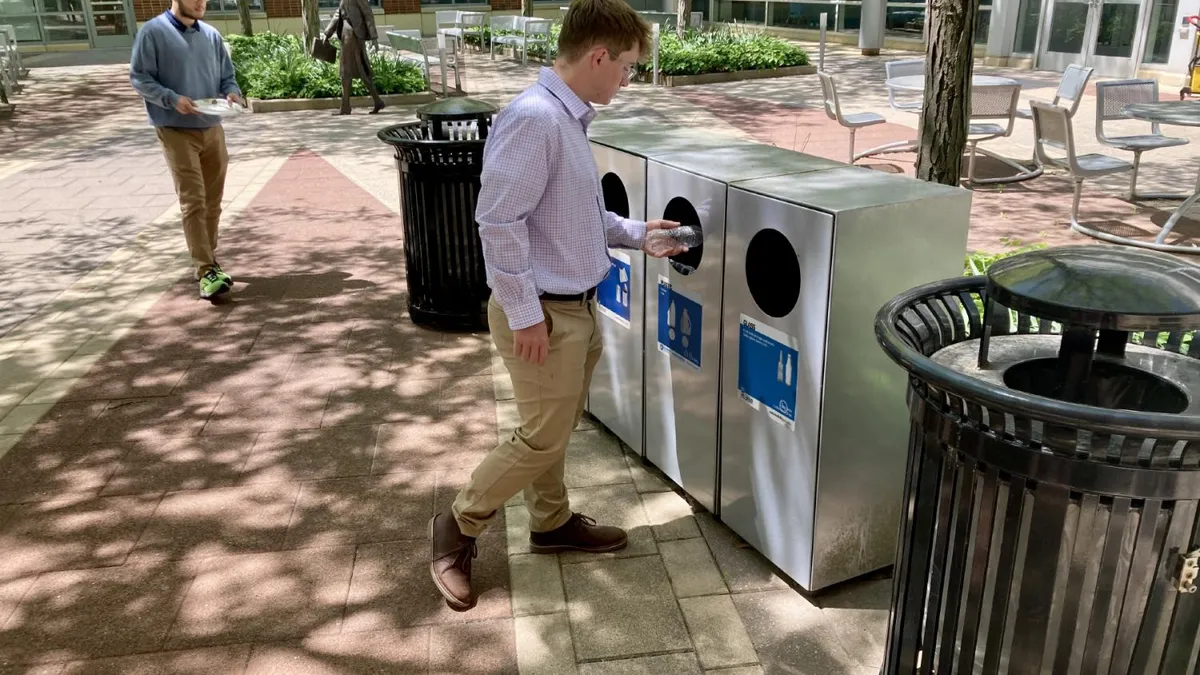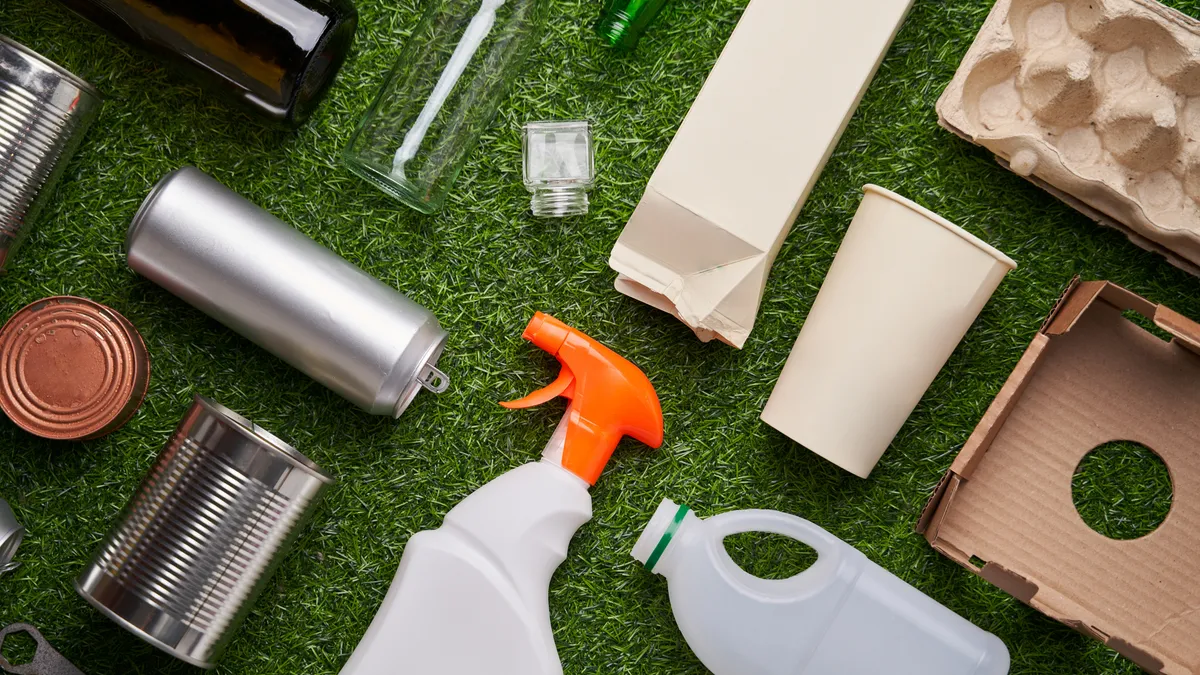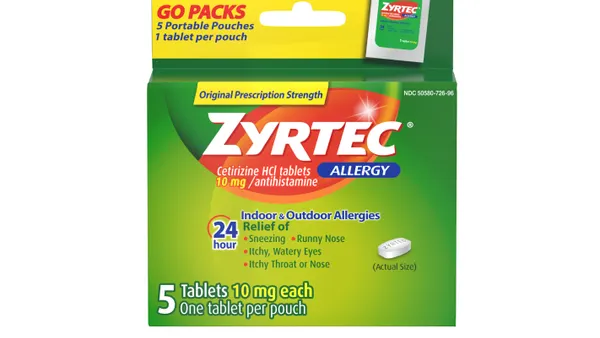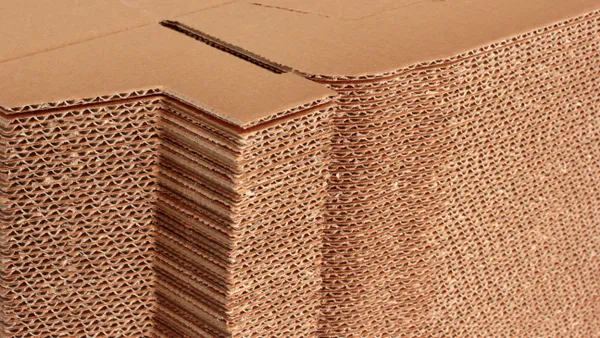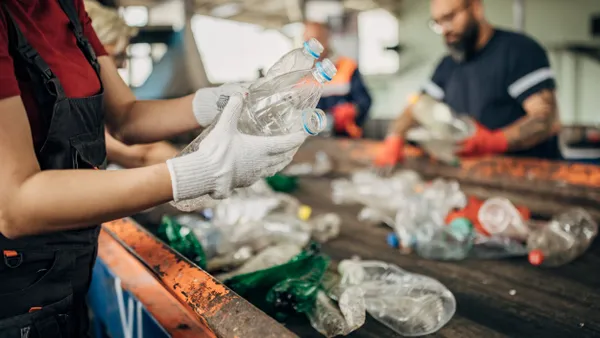Pennsylvania State University is the latest entity to join the trend of eliminating non-food items — even packaging labeled as compostable — from its organics recycling program. It’s also imposing restrictions to tighten the types of plastics accepted for recycling.
The university announced on Thursday that it will move to a “food waste only” composting model because the increase in compostable bags, flatware and drinkware has led to “operational challenges” for its Organic Materials Processing and Education Center. OMPEC is the institution’s own self-sustaining composting operation for nearly 4,000 tons of organics annually, and the resulting material is used on campus and sold to the public.
On the recycling side, only plastic bottles and jugs will be accepted, and “miscellaneous plastics” should be disposed of in the trash. The university said in a news release that this should improve its recycling rate, citing challenges with increased contamination and plastics market volatility.
This month, the Penn State Office of Physical Plant will install new signage on composting and recycling collection bins that illustrates the changes. However, Penn State anticipates that funding will become available this summer at the start of its new fiscal year to upgrade the facility. This would allow the program to resume accepting compostable packaging and foodservice ware by the fourth quarter of 2024, a spokesperson confirmed Monday morning.
As organics programs expand across the country, operators increasingly are questioning the viability of collecting fiber and compostable products — such as compost collection bags, compostable food serviceware and coffee filters — because of their inability to fully break down within the constraints of some commercial systems’ machinery and time frames.
Last year, the University of Wisconsin-Madison restarted an organics program on a trial basis after its previous program was canceled because of the high contamination rate and machinery struggled to break down some items, including paper containers and napkins. Named contaminants included compostable products. The new program only accepts food scraps.
In 2019, Oregon composter Rexius stopped accepting compostable packaging due to contamination. This spring, Colorado’s largest composter, A1 Organics, cut down its accepted materials to only food scraps and plant trimmings to reduce contamination.
“Even items that are labeled as compostable may be very difficult for our facility to successfully compost, depending on what they are made from,” said Ayodeji Oluwalana, Penn State’s waste reduction and recycling program manager, in a news release. “On top of this, the compostable and non-compostable version of many consumable goods often look identical, leading to confusion and ultimately, contamination.”
The changes come in response to the Penn State Waste Stream Task Force’s recommendations, which include reducing the number of material streams, eliminating miscellaneous plastics, simplifying sorting to reduce contamination, potentially upgrading the composting machinery and conducting a feasibility study for building and operating an on-campus MRF.



